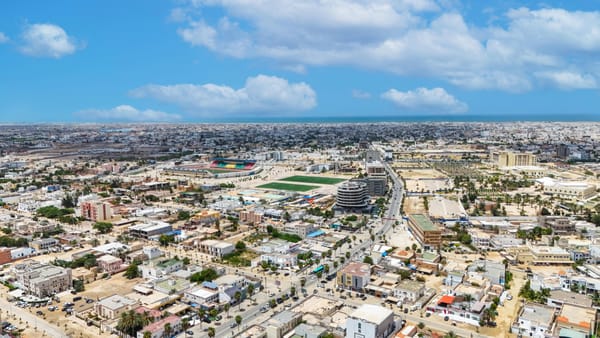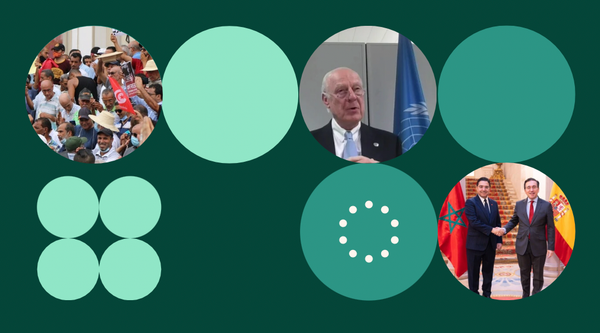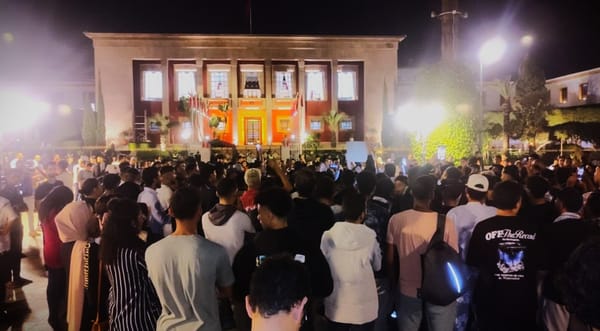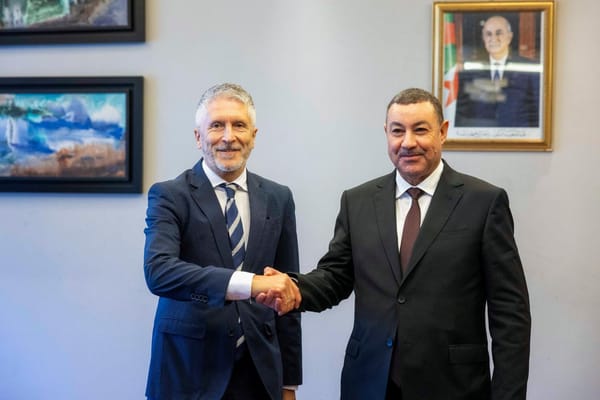#6months of Libya
NEWSLETTER. Violence in the capital, political succession in the east, uncertain prospects for reunification, growing interest from the US.
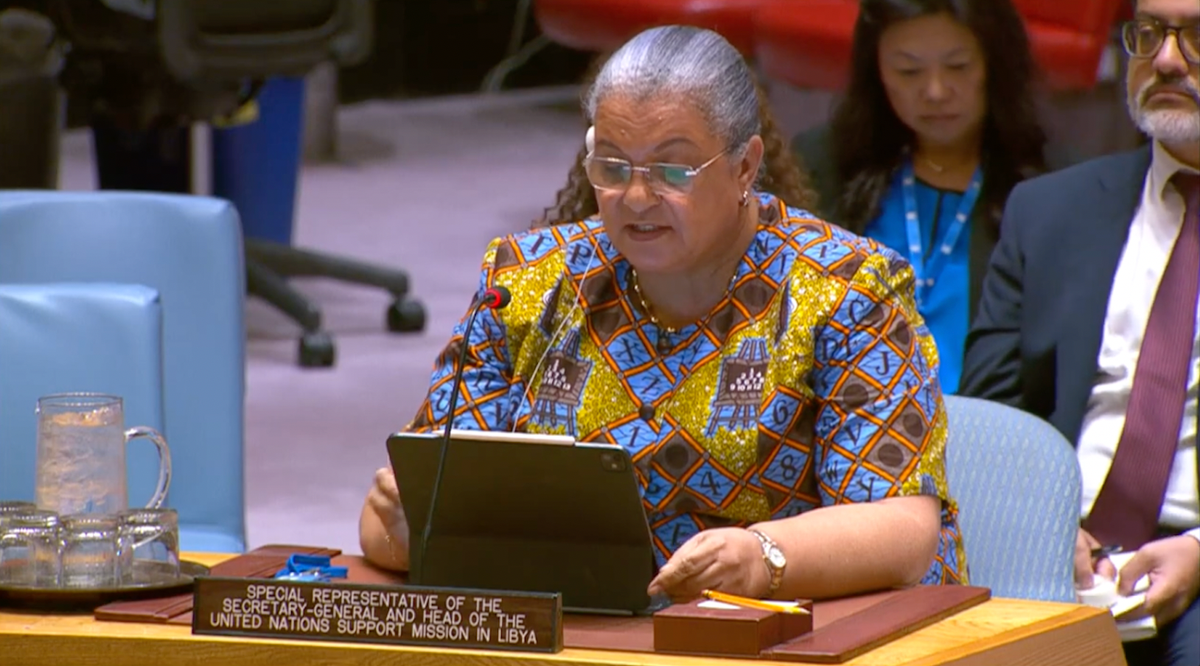
What happened.
Domestically, the country remains mired in political deadlock, characterised by the existence of two parallel governments: the Government of National Unity (GNU) in the west, and the Government of National Stability (GNS) in the east.
In May, GNU Prime Minister Abdel Hamid Dbeibah faced a violent outbreak in the capital that seriously jeopardised his position for several days. The assassination of Al Kikli, leader of the SSA opposition militia, during a meeting with rival militias in Tripoli triggered clashes between the Rada armed group, an SSA ally, and pro-government militias (such as the 111th and 444th brigades). Taking advantage of the unrest among the population, who blamed him for much of the chaos, Dbeibah announced a ‘restructuring of the security services’. In reality, this sought to tighten the noose around the various armed groups and bring them under the control of government structures, so that security tasks would be ‘exclusive to regular state institutions’ from that point onwards. To this end, he took various measures to integrate different services, such as the Judicial Police and Immigration, into the Ministry of the Interior, which is headed by Imad Tribelsi (who was controversial last year for considering the reinstatement of the 'morality police'). Dbeibah is increasingly being questioned and pressured to step down by institutions in eastern Libya, as well as being threatened by some of the militias that previously supported him. Although the leader is clinging to power, he was actually appointed transitional prime minister in 2021 with the aim of holding elections which never took place. In June, he presented his own plan to overcome the long political crisis, based on 'three tracks': a government reform based on merit rather than quotas or circles of influence; a 'national research project' to ascertain the wishes of the Libyan people; and finally, a clear mechanism to guarantee elections and eliminate the need for a parallel government. However, his proposal was not particularly well received in the following months against a backdrop of high tension in the capital, where conflicts between militias and clan killings continued until the final agreement was reached between the GNU and the Rada in mid-September, mediated by Turkey. The opposition militia agreed to withdraw from Mitiga Airport and transfer control of three prisons to the Ministry of Justice, as well as refraining from making arrests. Under the terms of the agreement, the Security Directorate (operating within the GNU structure) now has a monopoly on security in the capital. This means that militias can only have one headquarters within the city and must commit to not interfering in political affairs.
Although the political climate in the eastern part of the country appears stable, this is due to the growing control of political and economic institutions by Khalifa Haftar and his family. The 83-year-old Marshal continues to orchestrate the transfer of power to his sons. In August, he appointed his youngest son, Saddam, aged 34, as his Deputy Chief of the Libyan National Army (or Libyan Arab Armed Forces), having previously promoted him to the rank of Lieutenant General and Head of the Ground Forces. He also ensured that the House of Representatives amended military law to allow his son to succeed him as Commander-in-Chief upon his death, thereby assuming all powers.
Despite resolving the serious crisis over the governance of the Central Bank at the end of last year, institutions in the east and west have been locked in deep confrontation for over the last years. In May, President Mohammed al-Menfi (Tripoli) demanded that the House of Representatives (HoR) in Tobruk submit the laws passed there to him for approval as Head of State, as a preliminary step to their enactment in accordance with the constitution. In response, the HoR Speaker called for the urgent formation of a new government to replace the two existing ones, even convening sessions for candidate presentations. At the end of July, GNS Prime Minister Osama Hamad, who is backed by the HoR, ordered all officials under his jurisdiction to cease all cooperation with Dbeibah's government and refrain from providing it with any information or documentation. In August, the National Telecommunications Authority, linked to the western GNU, temporarily suspended Huawei's subsidiary's activities for 'signing illegal contracts with unauthorised entities in the country', thereby violating the Authority's monopoly.
However, despite the differences, there are signs that attempts at reconciliation are beginning to emerge, probably as a result of external pressure. Thus, in early September, Massad Boulos, the White House special envoy for Africa, managed to bring Ibrahim Dbeibah (the prime minister's nephew) and Saddam Haftar together in Rome for the highest-level meeting between the two ruling families in three years. However, no details of what was discussed have been disclosed.
The most significant external development was the launch of the new political roadmap in August by the UN Special Representative and Head of UNSMIL, Hannah Tetteh. This was achieved by gathering the opinions of the Advisory Committee and Libyans themselves via the Mission's website. The new plan aims to facilitate national reconciliation within 12–18 months. It is based on three pillars: creating a robust and viable electoral framework (including improving the High National Electoral Commission) to enable simultaneous presidential and legislative elections; provisionally forming a unified government and shared institutions; and holding a broad national dialogue to ascertain Libyans' expectations on critical issues such as security, governance, the economy, and reconciliation.
Besides, two international actors played a particularly important role during this six-month period: the US and Turkey. Firstly, President Trump appears to have suddenly regained interest in Libya, despite initially appearing to downgrade it on his list of priorities, even including it on the list of countries banned from travelling to the US. As with other African states, Trump seeks to implement 'transactional' diplomacy, promoting stability in Libya only insofar as it enables advantageous agreements for US companies. Thus, Massad Boulos's visits to Tripoli and Benghazi, followed by the aforementioned meeting in Rome, enabled him to play a more active role in the conflict by seeking to balance the two factions. While in the capital, Boulos, who is Tiffany Trump's father-in-law, attended the signing of a substantial contract for Hill International to manage various gas projects worth $235 million with Mellitah Oil & Gas. Furthermore, it is said that Dbeibah himself proposed a strategic partnership with the US involving investment projects worth up to $70 billion in sectors such as energy, healthcare, electricity, minerals and telecommunications. The aim was to win the favour of the US administration.
Turkey has also increased its involvement in the North African country, adopting a more pragmatic stance that has led to closer ties being built with Khalifa Haftar, an old adversary. In order to secure the maritime demarcation agreement signed with Tripoli in 2019 – a dispute that pits Turkey against Greece and Cyprus – it has moved closer to the east in order to obtain ratification by the HoR. Following Saddam Haftar's visit to Ankara in April, Turkish intelligence chief Ibrahim Kalin met with the Haftars in eastern Libya in August, and a Turkish frigate made a courtesy visit to Benghazi for the first time in years.
Despite its extensive experience on the ground, it seems that Italy has lost some of its influence in Libya in recent months, or is at least deploying its diplomacy more discreetly. This could be due to the controversy surrounding the release in January of former judicial police chief Osama Al Masri, who was wanted by the ICC for alleged torture in detention centres in Tripoli. This has triggered an investigation into several members of Giorgia Meloni's government. Alongside its strong economic and energy interests, particularly those of the oil company ENI, Rome is focusing on the migration issue in Libya. This has led it to strengthen relations with Tripoli and Ankara this semester, and to sign an agreement to increase cooperation in this area.
Meanwhile, Russia continues to strongly support Haftar's LNA, and according to Crisis Group, it continues to use its military bases in Al Jufra and Sirte as a 'logistical hub for its other operations in Africa'.
What's next.
The developments in the coming months will largely depend on how the roadmap set out by Special Representative Tetteh is received and implemented. While some analysts have greeted it with caution, fearing that it may be another failed proposal, many sectors view it optimistically, particularly as it contains more concrete measures and flexible-but-tight deadlines. Furthermore, the plan has received enthusiastic support from the Security Council and the EU, as well as approval from Prime Minister Dbeibah, President Menfi, and the assemblies in Tripoli and Tobruk. In any case, the public seems to support the democratic momentum that has been initiated, as evidenced by the 71% turnout in the municipal elections in August.
It will therefore be crucial to analyse the reactions of the Dbeibah and Haftar ruling families, who have much to lose if this democratic path continues and reunification takes place through new names emerging from the ballot box. It will also be important to observe whether the GNU Prime Minister can consolidate his power in Tripoli against the militias definitively, and whether both factions will take steps to integrate their forces into a unified army.
Throughout the evolution of the Libyan political situation, the will of the many international actors present in or with interests in the country has been, and continues to be, absolutely essential. Although President Trump does not appear to be particularly interested in exploring the root causes of the conflict, his new image as a 'peacemaker' and the apparent end of the war in Gaza could encourage him to become more involved in Libya. This could result in the swift adoption of an agreement that would favour his own economic and geopolitical interests in the region. However, this may not necessarily lead to a definitive resolution of the dispute, as has been the case with other 'peaces' touted by the president.

